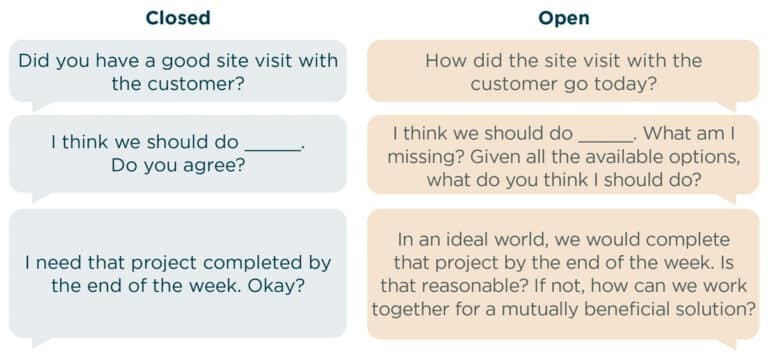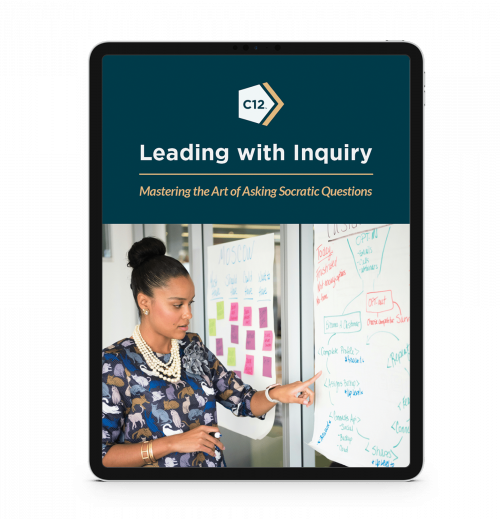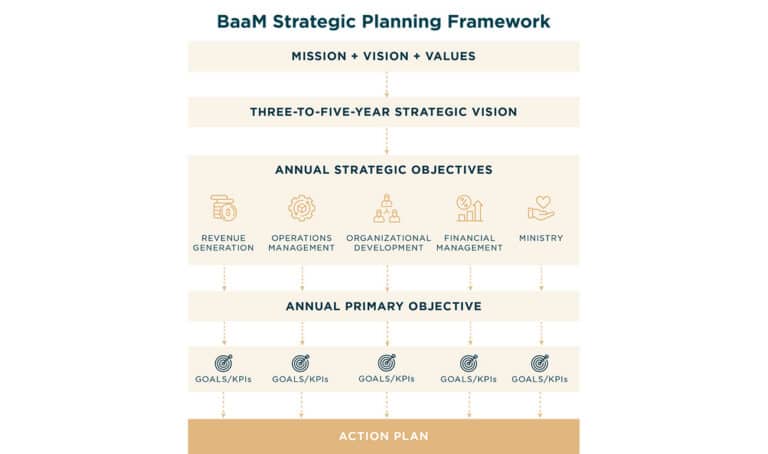The Curious Executive: Asking Questions for Better Results
The Effectiveness of an Inquisitive Leader
Walt Disney, the innovative American animation film producer and entrepreneur, was fueled by an unquenchable curiosity throughout his life. His curiosity in business drove him to take risks that others shied away from, ultimately laying the foundation for some of Disney’s most iconic experiences. When Walt purchased acres of seemingly worthless swampland in Florida, many doubted his decision. However, Walt asked an effective and pivotal question: “What could this become?”

Today, that land is home to Disney World, the most visited amusement park in the world. Walt’s curiosity and willingness to venture into the unknown not only brought him success but also left a profound impact on the world. Reflecting on Walt’s example, business leaders would be wise to consider the power of asking effective questions and embracing curiosity.
The Benefits of Curiosity in Business
The great leaders of history are often portrayed as certain and resolute in the face of adversity. However, these historical portrayals often gloss over the times when these leaders consulted others before making big decisions. As it turns out, curiosity, not certainty, is the hallmark of a great leader. Asking questions does not diminish your authority or credibility. Instead, it showcases humility, fostering respect and engagement from your team.
Each member of your team possesses unique perspectives, thoughts, and ideas that can only be accessed when you ask probing questions. In doing so, you unlock insights that might otherwise remain hidden. By encouraging open dialogue and inquiry, you create a space where every team member feels valued and empowered to contribute their distinct viewpoints.

Actively listening to the responses you receive will help you fully leverage the benefits of curiosity in business. Often, leaders ask questions with preconceived notions, which hinders genuine understanding. Approaching inquiries with humility and openness to unexpected answers is essential for active listening. Once you grasp an individual’s perspective, you can ask targeted questions that deepen your connection and mutual understanding.
Leading with Questions
In her groundbreaking book Multipliers, Liz Wiseman delineates two distinct types of leaders: Multipliers and Diminishers. Multiplier leaders amplify the intelligence and talents of their team members, fostering a culture of growth and collaboration. Diminishers inhibit their employees’ abilities, resulting in dissatisfaction and disengagement within the team.
According to Wiseman, the biggest difference between Multipliers and Diminishers is grounded in their curiosity and their use of questions. Here are two examples of what Multipliers and Diminishers may look like in a professional setting and how these roles can affect a business:
The Multiplier
Consider Thomas, an executive who embodies the Multiplier approach. Thomas cultivates a culture where questions are encouraged—an environment in which he can access the full intelligence of his team. He actively seeks input from all individuals in the company, valuing diverse perspectives and making his employees feel heard and valued. As a result, employees under Thomas’s leadership thrive, feeling empowered to contribute and achieve their personal and professional goals. Wiseman suggests that Thomas harnesses 70–100% of his employees’ capabilities.
The Diminisher
In contrast, meet Fred, a Diminisher leader. Believing that strong leaders are expected to possess all the answers, Fred regularly dismisses input from his team and generally makes decisions unilaterally. He micromanages his team, stifling employee autonomy, creativity, and a sense of disempowerment among his staff. According to Wiseman’s framework, it is likely that Fred is only accessing 20–50% of his employees’ potential.
While Multipliers leverage curiosity-driven leadership to unlock their team’s full potential, Diminishers hinder growth by focusing on command and control. Are you more inclined to ask questions or to give instruction and direction?
How to Ask Effective Questions in Business
To encourage curiosity within your company, you must become proficient in asking effective questions. The right kinds of questions will lead to better understanding, while the wrong kinds of questions can affirm pre-existing biases.

When you use leading, loaded, or rhetorical questions, you can inadvertently steer responses in a certain direction, which hinders the flow of input from others. Truly curious leaders will use one of the following approaches to ask effective questions:
Utilize Interrogative Questions
The Right Questions framework helps leaders use questions more effectively by drawing upon the primary interrogative words and providing guidance on their multiple applications:
Why: Use “Why” questions to delve into the reasons and motivations behind decisions or actions. “Why” questions are useful for exploring values, principles, priorities, and passions.
Where: “Where” questions help provide clarity on past, present, and future situations, guiding discussions about vision and direction.
What: “What” questions seek to identify specific things, such as the company’s mission, vision, values, or key strategies.
Which: Employ “Which” questions when analyzing options, evaluating risks, or making decisions about courses of action.
How: “How” questions focus on the methods or processes involved in achieving goals and facilitating discussions on plans, tasks, and resource allocation.
Who: Use “Who” questions to gather information about individuals, teams, networks, and relationships.
When: “When” questions pinpoint specific timeframes, aiding in planning, scheduling, and prioritizing initiatives.
Embrace Open-Ended Questions
Curious leaders favor open-ended questions over closed ones. Unlike closed questions that prompt simple “yes” or “no” responses, open-ended questions encourage deeper exploration and conversation. They typically begin with words such as “what,” “how,” “why,” “describe,” or “tell me about.”
Closed questions, while providing quick answers, can stifle team dialogue. Open-ended questions allow for richer, more nuanced conversations. For instance, instead of asking, “Did the meeting go well?” consider asking, “What did you think about the meeting?” This open-ended approach invites deeper discussion and encourages others to share their thoughts and insights.
Download our free tool, Leading with Inquiry: Mastering the Art of Asking Socratic Questions, for a list of Socratic questions, which are interrogative and open-ended.
Where to Apply Curiosity in Business
Gary Archer, President of Let’s Play Soccer, learned firsthand the importance of asking effective questions to strengthen his relationships with employees. Gary realized he had been making assumptions. When problems arose, he did not take the time to seek clarification or to understand the root causes. He realized, “I don’t listen very well, and I don’t ask a lot of questions with any level of sincerity.” The feedback Gary received from his team prompted him to take action.
With guidance from Jorge Chavez, a member of Gary’s C12 Forum, Gary discovered the transformative impact of curiosity in business and how to approach questions with genuine intent. This newfound understanding not only improved the way he led the company but also enhanced his relationship with his wife.
Establishing Your Core Principles: Mission, Vision, and Core Values
Whether you are crafting core principles for the first time or revisiting them, it is crucial to ask questions that reveal what truly matters to your company. These questions delve into your purpose, why you do what you do, who you serve, and the values you want your company to embody. The answers to these inquiries form the bedrock of your core principles, also known as the mission, vision, and values:
A mission statement is a succinct statement that expresses what the business does and why the business exists. It provides internal clarity to the organization.
Your vision statement is a forward-looking statement that describes what the success of the mission would look like or mean for the world. It should be inspirational and aspirational and lend itself to milestones of achievement.
Your core values list the essential behaviors that guide the organization and its culture. They are the cultural attributes to which the company aspires, that employees commit to embodying, and that shape the way we operate in the business.
Together, the core principles serve as guiding lights for your business’s direction. Engage your team in a curious conversation about the company’s mission, vision, and core values. Ask them what kind of mission and vision statements would excite them about the future of the company. Seek their input into the values that most accurately describe the behaviors that are wanted and expected in your workplace. By approaching core principles with curiosity, you provide space for team members to express their perspectives. Once established, your core principles serve as the anchor for the rest of your planning processes and future endeavors.
Patrick Lencioni and Peter Drucker recommend asking the following questions when engaging in conversations about your mission, vision, and values:
| Lencioni’s Six Critical Questions | Drucker’s Five Most Important Questions |
| Why do we exist? | What is our mission? |
| What do we do? | Who is our customer? |
| How will we behave? | What does our customer value? |
| How will we succeed? | What are our results? |
| What is most important right now? | What is our plan? |
| Who does what? |
Engaging in Your Strategic Planning Process
Effective leaders will also use questions to lead their teams through the strategic planning process. In the BaaM Strategic Planning Framework, your three-to-five-year strategic vision and annual strategic objectives are born from and powered by your faith-driven core principles.
By asking effective questions, you will help your team establish a three-to-five-year strategic vision, annual strategic objectives, and an annual primary objective while setting realistic goals and key performance indicators (KPIs). Consider utilizing the following questions to tap into your team’s full intelligence during your strategic planning season:
Past Successes: Reflecting on your history, what strategies or initiatives have proven to be successful in the past?
Industry Landscape: What is the current state of your industry, and what are your competitors doing? Should you emulate any successful strategies?
Future Goals: What future opportunities are on the horizon, and how can you position yourself to capitalize on them?
Key Performance Indicators (KPIs): What specific metrics are essential for your business to achieve your goals?
Managing Direct Reports
All leaders who manage people must learn how to get work done and achieve results through others. A third way to utilize the power of questions in business is to incorporate questions into your management style. People management questions will tap into your direct reports’ creativity and unlock increased productivity. At the same time, questions will help you understand your team members’ needs and aspirations. Through these conversations, you can offer guidance, counsel, and feedback in a manner that demonstrates genuine interest and empathy.
In managing your direct reports, adopting an “ask, don’t tell” approach is key. Marcus Buckingham suggests asking questions such as “What are you working on?” and “How can I help?” during weekly check-ins to clarify near-future work and provide tailored support to your team members.

Leading with inquiry will empower your direct reports to take ownership of their work while strengthening your bond with each of them.
Identifying and Solving Business Problems
A fourth way leaders can use questions in business is in the arena of problem-solving. In many ways, the job of a leader is to solve problems, and the strategic use of questions can help leaders become more effective problem-solvers. Here are a handful of questions you can ask to help identify problems in your business:
- What is currently happening?
- When does it happen?
- Why does it happen?
- Who does it affect?
- What is the impact on the company?
- Is it worth solving?
- What are the obstacles to overcome?
Using Questions to Identify Root Causes: Sometimes, the surface-level problems are merely symptoms of deeper underlying issues. Many leaders benefit from using the “5 Whys Analysis” to uncover the root cause of a problem. Each time you ask the question “why,” you get closer to pinpointing the real issue. When you can no longer ask, “Why is this happening?” you will have reached the root problem.
- Why is this problem happening?
- And why is that problem happening?
- And why is that problem happening?
- And why is that problem happening?
- And finally, why is that problem happening?
- Arrive at the root cause.
Using Questions to Identify Solutions: Once you have identified the root cause, it is time to devise a plan to tackle the problem. Utilizing “what if” questions with your team will stimulate creative thinking, while “how” questions will lead your team to discover possible pathways to improvement.
- What is the problem?
- Why is it a problem?
- What if __________ would happen? Would this still be a problem?
- What if we tried this solution?
- What if we tried a different solution?
- If you were me, which solution would you try?
- How would you implement this solution?
By actively engaging your team through strategic questioning, you can efficiently address business challenges and cultivate a culture of curiosity within your company.
Curiosity, Leadership, and Humility
Walt Disney’s curiosity led to some of the most iconic movies and theme parks in history. Faith-centered leaders will also recognize the prevalence of questions in Jesus’ approach to leadership. During his time on earth, Jesus engaged with His disciples and others in open dialogue, often through thought-provoking questions. The Gospels record Jesus asking 307 questions. He asked effective questions with humility and openness. Following Jesus’s lead, curious leaders will take a posture of humility, seeking first to understand before being understood.
Curiosity-driven leadership starts with a willingness to ask questions and listen attentively. Asking effective questions in business will lead to better results, paving the way for a clearer vision, a motivational strategy, a better method for problem-solving, and a thriving company with engaged employees.
C12 Business Forums provides an architected environment for Christian business leaders that integrates work, life, and leadership transformation. To learn more about C12’s approach to Christ-centered business leadership, find a C12 Business Forum near you.
April 5, 2024








